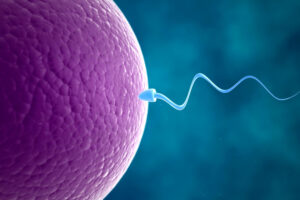In recent years, advancements in reproductive technology, particularly In Vitro Fertilization (IVF), have provided new opportunities for couples facing difficulties in conceiving naturally. Among the many factors involved in conceiving through IVF, one particularly fascinating aspect is the higher probability of multiple births, notably twins. Understanding the factors influencing the chances of twins with IVF can provide valuable insights for couples considering fertility treatment, and can seem like experiencing double the miracle. But how likely is it, and what’s the reality? In this blog, we will delve into the probability, factors, and essential aspects regarding conceiving twins with IVF.
Understanding Twin Types and Natural Conception
Having twins naturally occurs in approximately 1 in 250 pregnancies, and there are broadly two different types of twins, mentioned below –
1. Identical twins develop when a single fertilized egg gets divided into two, resulting in genetically identical siblings. This occurrence is quite rare, happening in about 3 or 4 out of every 1,000 births. Identical twins are always of the same sex because they share identical DNA.
2. Fraternal twins, on the other hand, occur when two separate eggs are fertilized by two separate sperm cells. Each embryo develops independently in the uterus, leading to siblings who may be of the same sex or different sexes. Unlike identical twins, fraternal twins do not share identical DNA and may or may not resemble each other closely. They are genetically similar to siblings born in separate pregnancies.
Understanding IVF and Twin Pregnancies
Before you start planning matching outfits and picking up complementary names, it’s crucial to grasp the conception of twins and the additional considerations involved in their journey through medical procedures. Simply put, IVF involves fertilizing an egg with sperm outside the body in a laboratory. Then the resulting embryos are implanted into the uterus, where they have the potential to successfully develop into a pregnancy. Multiple embryos can be implanted during IVF to increase the chances of successful implantation and pregnancy. This practice, known as embryo transfer, also significantly influences the likelihood of having twin babies in IVF.
Factors Influencing Twin Pregnancies in IVF
1. Age of the Woman: Advanced maternal age is associated with higher chances of multiple births during IVF. Women over the age of 35 often produce more eggs in response to fertility medications, increasing the likelihood of multiple embryos for transfer.
2. No. of Embryos Transferred: The decision to transfer one or more embryos during IVF directly impacts the chances of twins. While transferring multiple embryos can increase the likelihood of pregnancy, it also raises the risk of multiple births, including twins.
3. Fertility Medications: Ovulation-inducing medications used in IVF can stimulate the ovaries to produce multiple eggs, leading to the development of multiple embryos. This can increase the chances of twins if more than one embryo successfully implants.
4. Family History of Twins: Genetics play a significant role in the likelihood of conceiving twins, especially if twins run in the female’s family or if she, herself is a twin. This genetic predisposition affects females specifically, influencing the chances of hyper-ovulation.
Understanding Statistics of Twins with IVF
According to Research and Fertility clinic data, approximately 30% of pregnancies resulting from IVF involve multiple births, with the majority being twins. The rate of twin pregnancies is generally, significantly higher than natural conception, where the average is around 1 in 80 pregnancies. The desire for twins is common among many prospective parents, and with various assisted reproductive technologies (ART) such as IVF, the chances of conceiving twins improve. While the natural occurrence of twins is approximately 6%, statistics show that about 20-25% of pregnancies achieved through IVF result in twins.
Risks and Considerations
Before you start pinning adorable twin nurseries on your Pinterest boards, understand that carrying multiples comes with certain complexities. While a healthy twin pregnancy is achievable with close monitoring, factors influencing twin births like genetics and age are largely beyond our control, and since the prospect of twins may be exciting for many couples, it’s essential to consider the associated risks:
1. Higher Risk Pregnancy: Multiple pregnancies are at higher risk for complications such as premature birth, low birth weight, preeclampsia, and gestational diabetes.
2. Medical Monitoring: Women carrying twins require more frequent medical monitoring throughout pregnancy to manage potential complications and ensure the health of both the mother and the babies.
3. Emotional and Financial Impact: Raising twins can pose unique challenges emotionally and financially, requiring additional resources and support.
Yes, achieving twin babies with IVF is indeed possible, but it also necessitates appropriate treatments and expert guidance. The chances of twins with IVF are influenced by various factors, including the woman’s age, number of embryos transferred, and fertility medications used. While multiple births can be a desired outcome for some couples undergoing fertility treatment, it’s crucial to weigh the benefits and risks carefully with medical professionals.
For tailored fertility solutions and top-notch IVF treatments in Hyderabad, consider consulting the specialists at The Boon IVF. With experienced professionals, a proven track record of successful results, advanced technology, and comprehensive approaches, your dream of having twins can be realized. Schedule a consultation with The Boon IVF specialists today.


